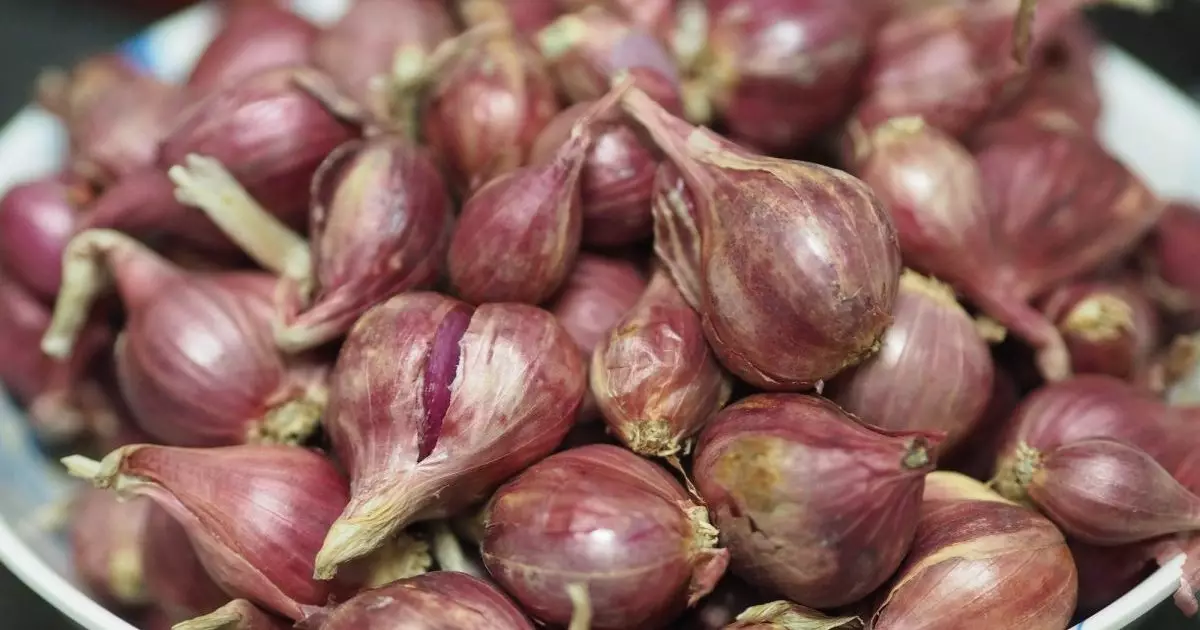When it comes to human cuisine, shallots often steal the spotlight with their unique flavor profile and versatility in countless dishes. However, for dog owners contemplating sharing a taste of these culinary delights with their furry companions, it’s essential to understand the inherent risks involved. The shallot, like its onion cousins—garlic, leeks, and chives—belongs to the Allium family. While we relish these additions to our meals, they pose serious health threats to our dogs.
What many pet owners don’t realize is that the compounds in shallots can unleash oxidative damage within a dog’s body. Unlike us, who might digest these foods without a second thought, dogs can suffer from severe health consequences that can ultimately lead to anemia and other critical conditions.
The Sneaky Dangers of Shallots
The toxicity of shallots isn’t just a myth; it’s a well-documented issue that can manifest in various dangerous symptoms. After ingesting shallots, a dog may exhibit signs such as diarrhea, vomiting, abdominal pain, and excessive drooling. These symptoms can seem benign at first, leading to a false sense of security for the owner. However, the oxidation process caused by these vegetables attacks the dog’s red blood cells, resulting in potential intestinal ruptures and gastrointestinal obstructions if consumed in larger quantities.
It’s critical to note that symptoms may not surface immediately. In fact, larger breeds may mask the effects of shallot consumption longer than smaller dogs. This delayed reaction can lead to more serious health issues, including lethargy, rapid breathing, and pale gums—all signs that indicate your pet might be in serious trouble. The bottom line is that the allure of culinary experimentation with shallots should never outweigh the health risks posed to your canine companion.
A Call to Proactive Pet Ownership
Pet ownership comes with a substantial responsibility, and understanding which foods are toxic is a fundamental aspect of keeping your dog healthy. The temptation to share our meals can lead to unintended consequences. If your dog manages to snag a small piece of shallot or a dish containing these ingredients, it doesn’t present an immediate crisis. However, vigilance is essential. Monitor your dog’s behavior closely, and consult a veterinarian if you notice any signs of distress.
On the other hand, if your dog consumes a significant quantity—particularly in dishes laden with shallots—immediate veterinary attention is imperative. The amount of shallot considered toxic can vary based on the dog’s breed and size, but once ingestion occurs, the countdown to potential toxicity begins.
The amount of shallots or onions that’s toxic is also surprisingly manageable. For instance, studies suggest that for every 20 kilograms of body weight, a dog can experience toxicity after consuming just 100 grams of onion (equivalent to a medium-sized onion). It’s sobering to remember how much of these ingredients are found in our kitchens, from sauces to cooked dishes. The convenience of these staples must not overshadow the importance of dog safety.
Educating Ourselves and Others
The conversation about canine safety extends further than individual circumstances. We should educate ourselves and fellow pet owners about which foods are harmful to dogs, including shallots. Share this information with friends and family, especially those who may have recently welcomed a new dog into their homes.
Take note of the kitchen ingredients that hide in plain sight. Shallots, while seemingly innocuous, can indeed have life-threatening implications for our dogs. By becoming informed about the dangers of various foods—including those that we might cherish ourselves—we can actively create a safer environment for our pets.
In a world where gastronomy becomes ever more adventurous, our responsibility is to discern which culinary wonders are best left unshared. Dogs depend on us for their safety and health, and it is crucial to uphold that trust by being aware of the risks presented by everyday ingredients, particularly those deceptively delicious shallots.

